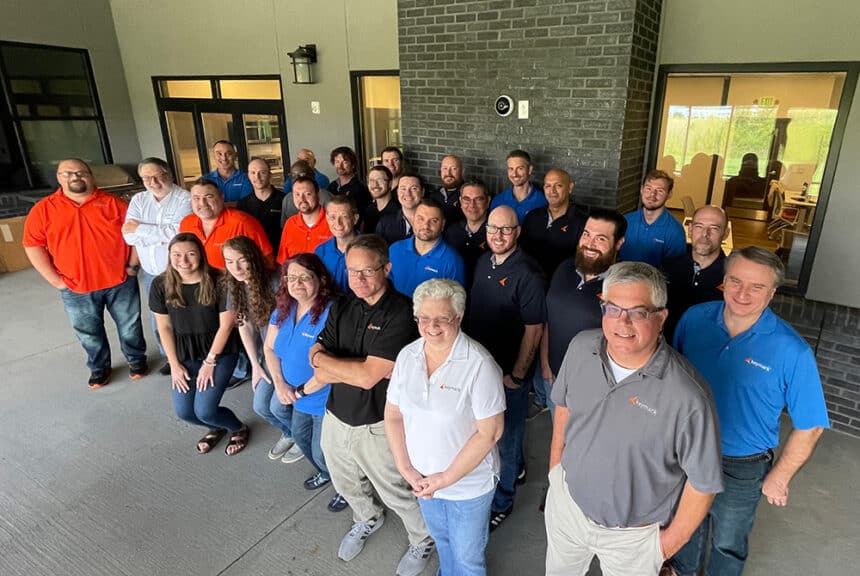Automation is an essential component of most successful healthcare businesses. Many automation tools can free up resources that otherwise might bog down the human employee and allow them to focus on more meaningful tasks while reducing errors commonly found in repetitive functions.
The thought of implementing new technology, however, can often feel cumbersome and overwhelming, yet, automation is not only cost-effective to deploy, it can also be done quickly. Taking automation one step further, Robotic Process Automation (RPA) helps healthcare organizations improve many areas, such as patient satisfaction while delivering top-level care with precision.
So, what is RPA?
Administrators and technology officers looking to improve operational efficiencies are turning to robotic intelligence for mundane tasks that impede the productivity of human workers. RPA streamlines manual processes that remove the burden of administrative tasks from human employees.
Patient satisfaction continues to be at the core for measuring success in healthcare settings, so RPA allows staff the time to focus on patient care with a human touch. With the goal of simplifying and automating repetitive, high-volume tasks that are prone to data entry errors, RPA can augment common healthcare operations in several areas, including:
- Self-registration and admissions
- Qualifying patient eligibility
- Patient communications
- Pharmacy inventory management
- Physician credentialing
- Integration between outdated systems that have no back-end integration methods
With RPA deployed, healthcare teams can more-effectively manage patients, from admission to discharge, with personalized attention. As a result, businesses have a competitive advantage over those who are overwhelmed with manual tasks, such as data entry laden with the potential for errors.
How does RPA work?
RPA is essentially configurable software that guides digital workers (commonly known as bots), to interface or integrates with systems, portals, etc. to enter, read and decipher data as well as track it. Depending on your healthcare practice’s specific needs, RPA can be customized and is best suited for rule-based tasks. After RPA is configured, digital workers interface with as a human would with applications such as Electronic Health Record (EHR), data input screens, online application programming interfaces (APIs), and structured and unstructured data repositories. With RPA in place, there are fewer errors and reduction in critical mistakes that can alter a patient’s medical status.
Is RPA Right for You?
The healthcare industry is constantly striving to offer a better patient experience that will not only resolve a health concern, but can do it quickly, thoroughly and accurately. Patients demand a personalized approach that delivers the quickest path to successful results. Medical professionals and staff, however, are often delayed by archaic, manual processes, including data entry, inventory (from patient to equipment) tracking and restrictive budgets. Automation, specifically RPA, can transform aging programs into thriving technology centers.
Consider the ability to decrease operational costs while increasing compliance through monitored and documented steps. RPA provides better productivity through a digital workforce that never experiences fatigue, eliminates human errors, and improves accuracy. CTOs and other C-suite executives can scale robotic software more easily and quickly than hiring new employees for menial tasks and can program RPA to work around the clock without the need for overtime pay.
Although other software applications designed specifically for the medical industry exist to lessen errors and increase patient satisfaction, RPA’s digital workforce truly provides human ability through substitution rather than simplifying a task for a human worker. As a result, healthcare practitioners can focus on patients, while the executive team can look toward the future with newfound confidence.
Examples of RPA in Healthcare Settings
Some of RPA’s biggest benefits and impacts in the healthcare industry include:
- Enhanced and expedited patient communications and scheduling
- Better patient experience and satisfaction
- Increased employee engagement by deploying staff to work on more meaningful tasks
- Fact-finding: digital workers can crawl websites and insert information directly into the EHR
- Expedited benefits through cost estimate generation
- Automation of simple claims processes
Additionally, healthcare executives can use RPA to grow their business by utilizing RPA to:
- Help with compliance
- Maximize workload without added headcount or overhead
- Increased brand reputation
- Reduce risk management
- Improve revenue cycle functions
RPA digital workers can streamline online scheduling, appointment requests, working with insurance carriers, personal preferences, preferred locations, etc., to create one seamless report to a referral management representative that follows the patient from entry to discharge.
With these new processes in place, the entire healthcare facility benefits. As a result, customer satisfaction increases, employee stress is reduced, and focus is placed on patient care.
How to Get Started
When determining how RPA might benefit your healthcare business, think small first. It’s pointless to purchase multiple bots without first identifying the most repetitive tasks with the highest manpower costs. A reputable RPA partner can help you identify processes that will benefit most from increased automation and allow you to scale without hiring additional staff.
The most important thing to remember is don’t try to solve for every job out of the gate. Instead, think of the most manual and repetitive processes; the areas that need the most improvement, and consider which low-value tasks can be removed and substituted with a digital workforce. Eliminating these common, menial processes will provide the biggest benefit and immediate ROI to any healthcare provider.
How to Find the Right RPA Partner
To begin the vetting process for potential RPA platforms, CTOs or other decision makers should specifically look for a solution that applies to the healthcare industry and partners with digital transformation leaders. RPA’s digital workers aren’t an end-all answer to administrative projects, but rather, are part of the entire automation tech stack as one component of the digital strategy. Finding a provider that understands those in the medical field and ensures and solves for the pain points associated with the healthcare industry is crucial.
Once you’ve identified candidates for your RPA solution, look for how quickly you will be up and running; how reliable their software is; and how easy it is to scale. You’ll want a healthcare automation solution that can keep up as your business needs increase, so downtime, slow deployments, and a solution that can’t keep up with your growth is undesirable.
With these considerations in place, you’re ready to begin the implementation process of an RPA product that can grow as your business increases yet won’t impact much more than your original investment. Using a trusted RPA partner like KeyMark, who brings a wealth of experience to any technology implementation, can help healthcare and life sciences organizations completely transform their automation processes. Offering best-of-breed technology from industry-leading healthcare RPA providers, KeyMark can help you revolutionize the way your healthcare company conducts business.
Take the Next Step
We can help you decide pretty quickly whether this would be a good fit for your organization. With 20+ years of experience in automation, we just need about 5 minutes of Q&A.



